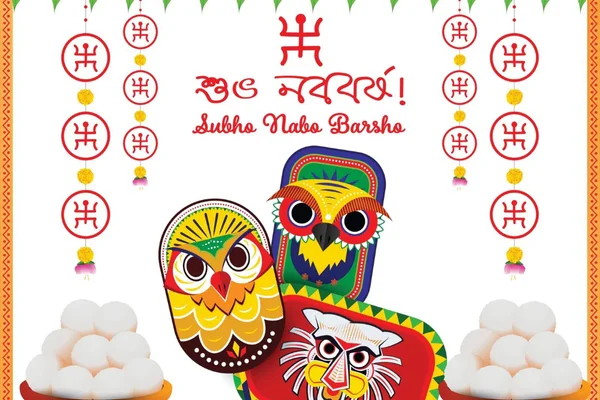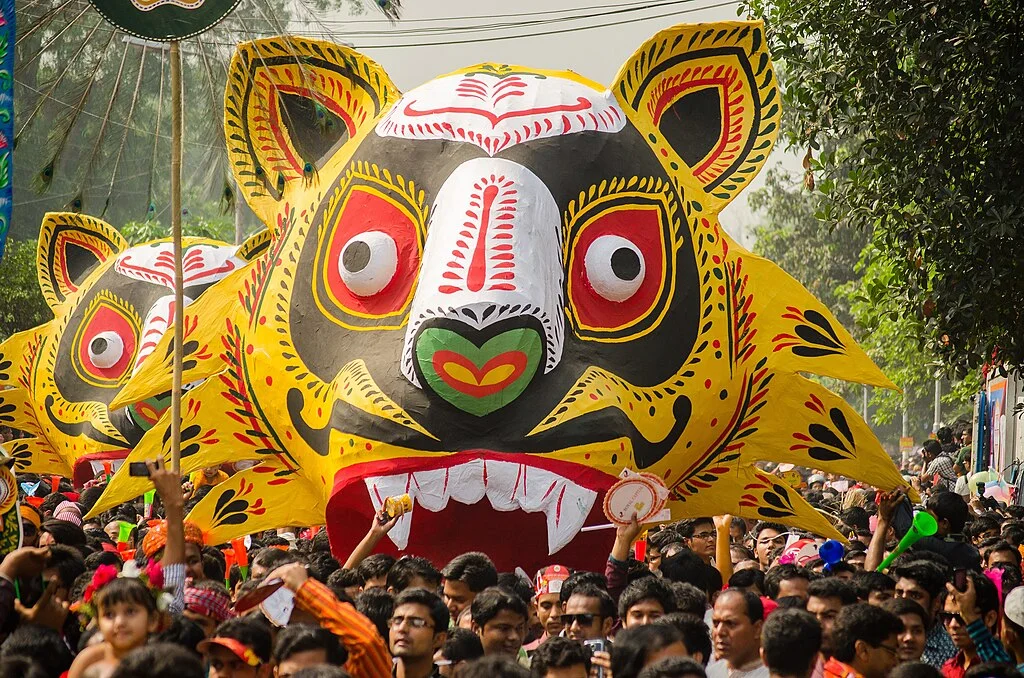The West Bengal government has issued a notification declaring Poila Boisakh, the first day of the Bengali New Year, as the State Day and a song Banglar Mati Banglar Jal written by Rabindranath Tagore as the State Song.
About Poila Boisakh:
- Pohela Boishakh marks the first day of the Bengali calendar, celebrated on April 14 in Bangladesh and April 15 in the Indian states of West Bengal, Tripura, Jharkhand, and Assam (Barak Valley).
- Bengalis, irrespective of religious faith, participate in the festivities.
- Pohela Boishakh is celebrated with processions, fairs, and family gatherings.
- The traditional greeting for Bengalis during the new year is Shubho Noboborsho, meaning “Happy New Year.”
- In Bangladesh, the festive Mangal Shobhajatra is organized, and in 2016, UNESCO declared this celebration, organized by the Faculty of Fine Arts, University of Dhaka, as a cultural heritage of humanity.
Significance of the festival:
- Poila Baisakh holds significance as it aligns with the harvest season, prompting people to offer prayers to Lord Ganesha and Goddess Laxmi, seeking blessings for prosperity in their lives and households.
- During Poila Baisakh, individuals chant prayers with the belief that it will bring them peace, good health, and long and stable lives.
- Seeking divine blessings is a central theme of the celebrations.
Historical context:
- Mughal Emperor Akbar introduced the Bengali calendar in 1584, primarily for tax collection purposes.
- This historical event marked the beginning of the Bengali New Year, celebrated as Poila Baisakh.
- The Bengali calendar is distinctive as it merges elements of the Hindu Solar Calendar with the Hijri lunar calendar, reflecting a synthesis of cultural and religious influences.
Ref: Source
| UPSC IAS Preparation Resources | |
| Current Affairs Analysis | Topperspedia |
| GS Shots | Simply Explained |
| Daily Flash Cards | Daily Quiz |



